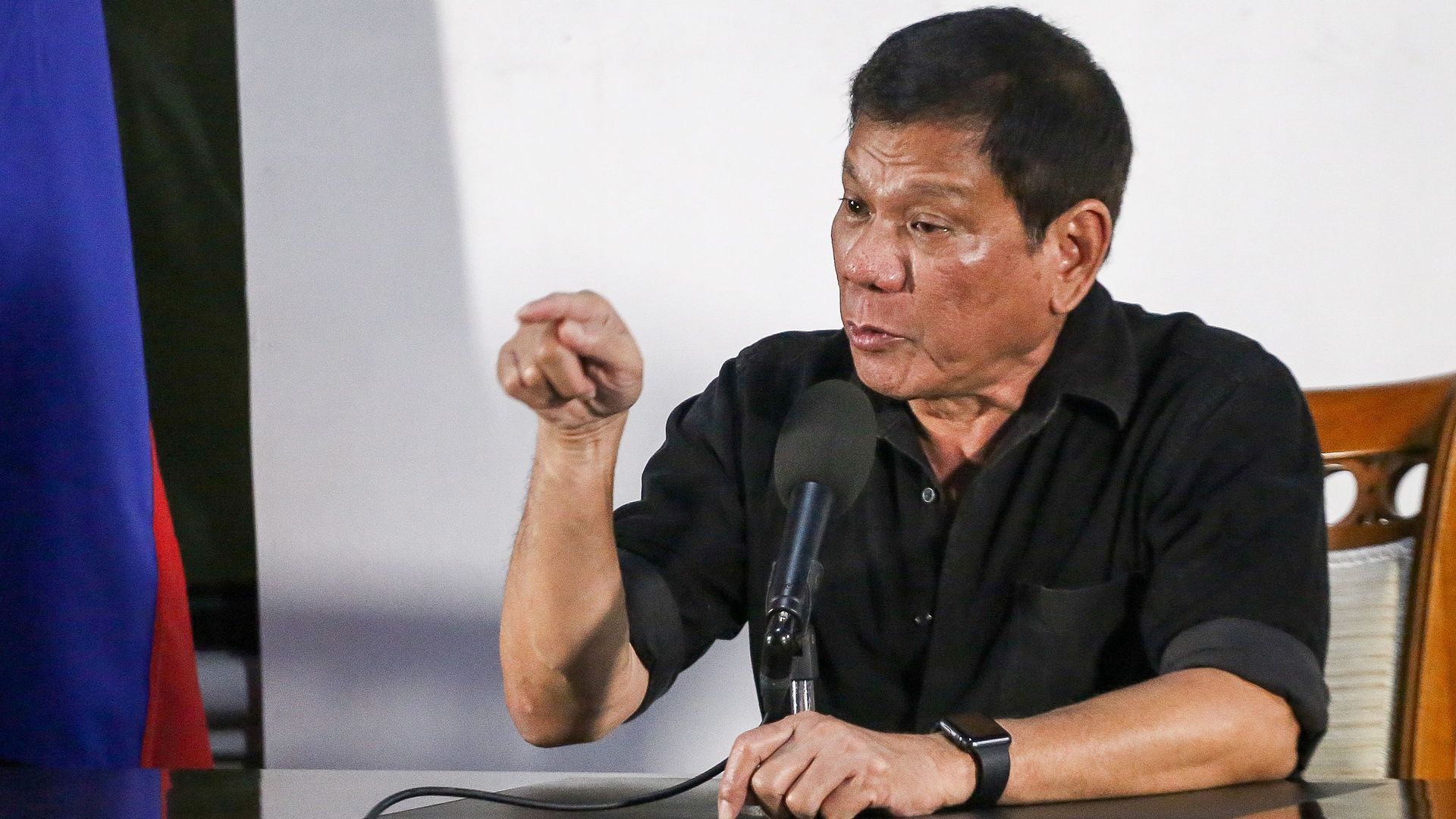Philippines' biggest TV network shut down amid feud with Duterte
Add Axios as your preferred source to
see more of our stories on Google.

Duterte spars with the media during a press conference. Photo: Manman Dejeto/AFP via Getty
The Philippines' telecommunications commission shut down the country's largest TV network on Tuesday, in a surprise move that follows other steps by President Rodrigo Duterte's government to put pressure on major media outlets.
Why it matters: The cease-and-desist order for broadcaster ABS-CBN follows legal threats on the Philippines' largest newspaper, which was sold under pressure to a Duterte ally, and legal cases against leading news site Rappler. It also removes a leading source of news from the airwaves during the coronavirus pandemic.
Where things stand: The order came a day after ABS-CBN's 25-year operating license from Congress expired. The renewal remains pending in Congress, which is filled with Duterte's allies.
The big picture: The network, which has become a cultural symbol and is watched by millions of Filipinos worldwide, was forced to sign off early Tuesday night, leaving the jobs of some 11,000 staff in peril.
What they're saying:
- A presidential spokesperson backed the commission: “We thank the network for its services to the Filipino nation and people especially in this time of COVID-19. But in the absence of a legislative franchise, as we have earlier said, ABS-CBN’s continued operation is entirely with the National Telecommunication Commission’s decision."
- The network also issued a statement, saying: "We trust that the government will decide on our franchise with the best interest of the Filipino people in mind, recognizing ABS-CBN’s role and efforts in providing the latest news and information during these challenging times."
- Media organizations and human rights groups labeled the move an attack on freedom of the press and on the Southeast Asian country's fragile democracy.
Flashback: The media giant was shut down in 1972 during the dictatorial rule of Ferdinand Marcos and reopened after the 1986 People Power Revolution.
The big picture: Duterte has responded angrily to critical coverage, particularly of his violent drug war. He has warned that journalists "are not exempted from assassination."
- His actions are part of a worldwide trend of strongmen leaders using the pandemic to clamp down on critics and advance their agendas.
Go deeper: Press freedom is eroding around the world
